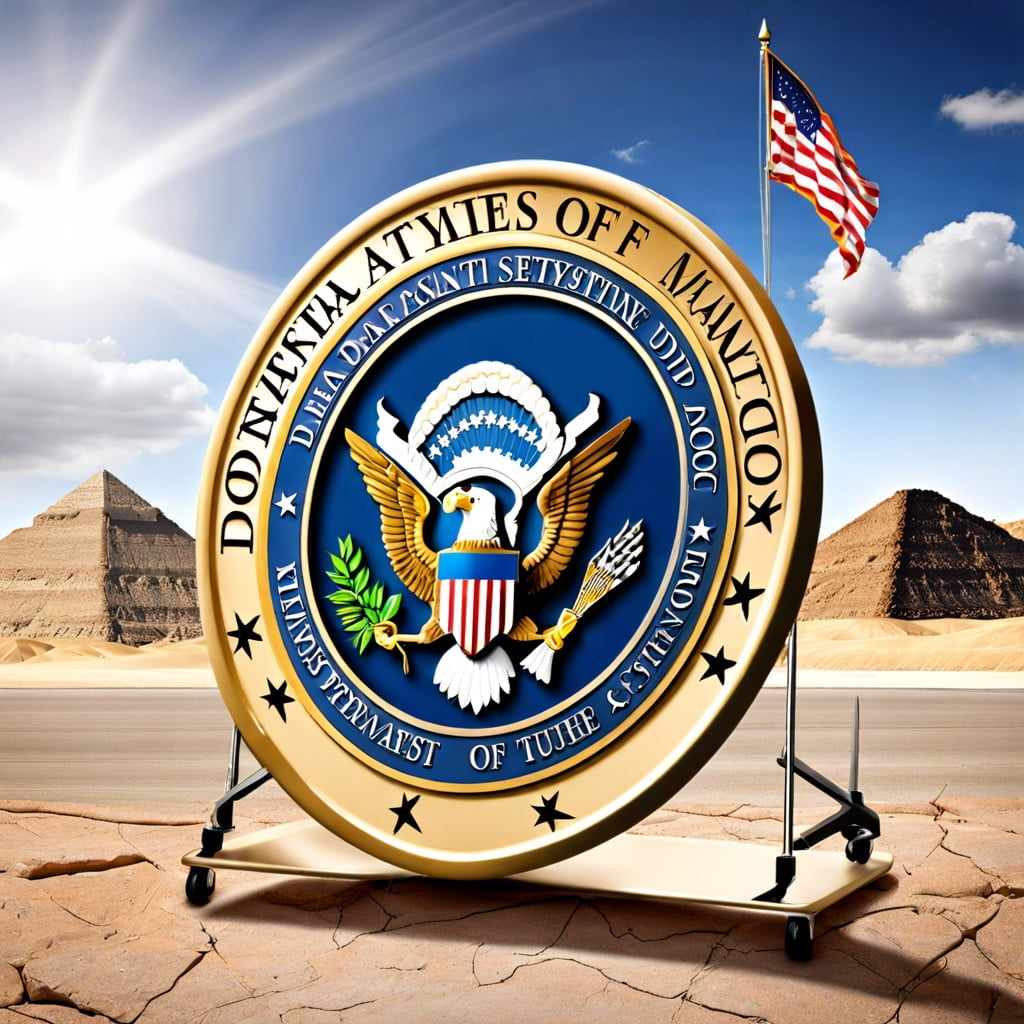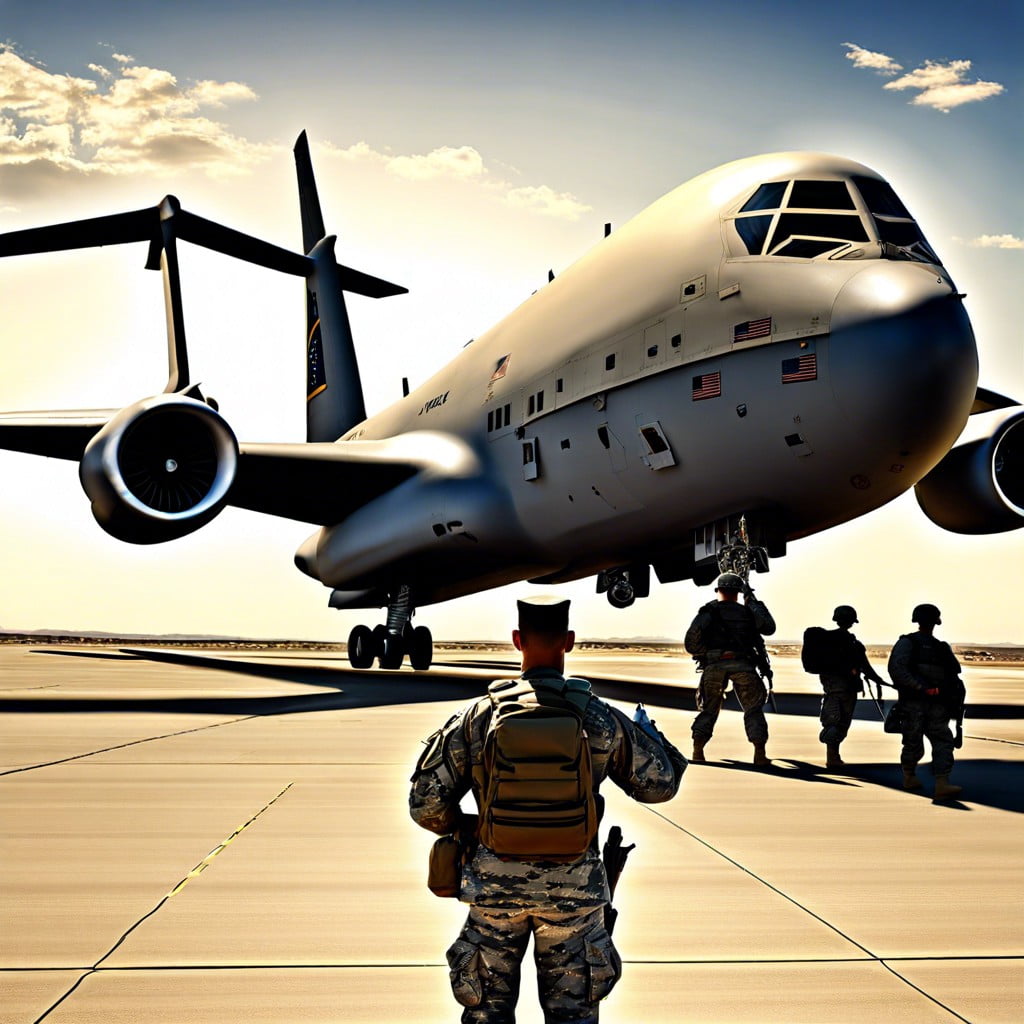Last updated on
Busting myths about the Department of Defense travel policy becomes imperative because misconceptions can lead to unnecessary complications.
Navigating the intricacies of the Department of Defense (DoD) travel policy can be a daunting task, as there’s a plethora of rules and regulations to follow. However, there’s also a fair share of misconceptions about what these policies entail.
Whether you’re a service member, a civilian employee, or a contractor, understanding the actual boundaries of travel frequency, expense reimbursements, flight preferences, pre-approval procedures, and payment methods is crucial for compliance and financial planning.
This article slices through the fog of misinformation, providing clarity on the realities of DoD travel policy that will ensure your next trip is both within regulations and budget-friendly.
Let’s embark on demystifying the myths and laying bare the facts.
Key takeaways:
- Limits on travel frequency and duration.
- Reimbursement only up to per diem rate for expenses.
- Commercial flights allowed, but preference for US carriers.
- Pre-approval required for most travel expenses.
- Personal credit cards can be used for official travel.
Myth 1: Unlimited Travel Benefits

Contrary to popular belief, Department of Defense (DOD) employees do not have carte blanche to travel on the government’s dime. Instead, travel must be mission-essential and cost-effective. The Joint Travel Regulations (JTR) provide clear guidance that all official travel should be carefully planned to ensure it is necessary, authorized by appropriate officials, and falls within permitted budget constraints.
Moreover, the use of travel benefits is strictly regulated, with an emphasis on fiscal responsibility and accountability. Here are some key points clarifying the limitations of these benefits:
- Prior justification for any trip is a must, especially to ensure it is directly related to military or DOD needs.
- Limits are imposed on the duration and frequency of travel to support governmental effectiveness.
- Expenses incurred during travel are reimbursable only up to the per diem rate for meals and lodging; this is not an open-ended coverage.
- Luxury accommodations and first-class flights aren’t typically authorized without specific, justified reasons.
- Personal travel expenses must be segregated and are not covered under any DOD travel policy.
In essence, while there are comprehensive provisions for travel when necessary, the image of unlimited globe-trotting at the expense of the DOD doesn’t hold up to scrutiny.
Myth 2: JTR and Reimbursement

Contrary to popular belief, the Joint Travel Regulations (JTR) do not guarantee automatic full reimbursement for all travel expenses. Service members and DoD civilians need to be aware of several key points:
- Reimbursable Expenses: Only costs that are essential and authorized for the official travel are covered. This includes transportation, lodging, and meals, but does not extend to all forms of expenditure.
- Receipt Requirements: Keeping receipts is crucial. For most expenses, the JTR requires proof of payment for reimbursement, especially for lodging and any expenditure over $75.
- Per Diem Rates: These fixed amounts cover lodging, meals, and incidentals per day of travel. Rates vary by location and do not always match the actual cost incurred.
- Advance Planning: Travelers must plan in advance to ensure expenses are within the authorized budgets and comply with the regulations to be reimbursable.
- Non-reimbursable Expenses: Personal expenses such as room service, entertainment, or travel insurance are typically not covered unless expressly authorized.
- Pre-Authorization: For certain costs to be reimbursed, they may need pre-approval from the appropriate authority within the DoD.
- Expense Report Timeliness: It’s critical to submit an accurate and timely travel claim. Delays can result in complications and potentially a denial of some reimbursements.
Understanding these nuances can help ensure compliance with the JTR and prevent any unexpected out-of-pocket expenses.
Myth 3: Restricted Air Travel

Contrary to popular belief, Department of Defense (DoD) personnel are not limited to flying solely on military aircraft when traveling on official business. Here’s the real deal:
- Commercial Travel: DoD members are permitted to book commercial flights, provided they adhere to the guidelines which often prefer them to select from U.S. carriers, known as the “Fly America Act.”
- Cost-Savings Preference: While not a restriction, there is encouragement to seek the most cost-effective flight options that meet mission requirements, which may include commercial economy class.
- Authorized Class of Service: Depending on the travel distance, duration, and purpose, DoD travelers may be approved for business or first-class accommodations under specific, justified circumstances.
Understanding these points demonstrates the department’s balanced approach to efficiency and practicality in air travel arrangements.
Myth 4: Need of Pre-Approval for Reimbursement

Contrary to what some may assume, the DoD travel policy states that authorization from a travel order is typically required before incurring any travel expenses. Here’s a quick guide to understand the approval process:
- 1. Pre-travel authorization ensures travel expenses align with official duties.
- 2. Advance planning can lead to approved funding, reducing out-of-pocket costs.
- 3. Sometimes immediate travel is necessary; in these cases, retroactive approval may be available, but it’s not the norm.
- 4. The Defense Travel System (DTS) often facilitates pre-travel approval, streamlining the process.
- 5. Always check with your supervisor or travel office for specific guidance relevant to your assignment and travel circumstances.
Navigating the pre-approval system ensures smooth sailing for your duty travel and reimbursement process.
Myth 5: Personal Credit Card Usage Is Prohibited
Contrary to popular belief, service members and DoD civilians can indeed use personal credit cards for official travel expenses. There are, however, some points to be aware of:
- Government Travel Charge Card (GTCC): While the GTCC is preferred and sometimes mandatory, under certain circumstances, individuals can opt for their private cards.
- Rewards and Points: Personal credit card rewards programs allow you to accrue points or miles, making it an attractive choice for some.
- Reimbursement: Expenses charged to a personal credit card will be reimbursed, subject to approval, upon submitting a proper travel claim.
- Credit Score: Timely reimbursement is crucial as late payments on personal cards could affect your personal credit score.
- Reporting: All transactions regardless of the card used must be reported and will be scrutinized against the travel policy.
Understanding the implications of card choice ensures compliance without missing out on potential personal credit benefits.
Myth 6: Policy Covers Personal Expenses
The Department of Defense travel policy delineates a clear boundary between official and personal expenses. While it comprehensively covers work-related costs, personnel must shoulder personal expenses out-of-pocket. This includes leisure activities, unofficial side trips, and purchases unrelated to the mission at hand.
It’s important to differentiate between work and personal spending to ensure compliance with the Joint Travel Regulations (JTR). Keep meticulous records and receipts for all expenditures to streamline the reimbursement process for legitimate work expenses. Remember, integrity in reporting is crucial to uphold the standards expected of DoD personnel.
Myth 7: Lacks Flexibility
Contrary to popular belief, the Department of Defense (DoD) travel policy is designed with a degree of flexibility to accommodate the diverse needs of service members and civilian employees. Here are some points to highlight the adaptability within the guidelines:
- Adjustable Itineraries: While mission requirements dictate primary travel dates and destinations, there are provisions for adjusting itineraries when official duty permits, respecting both government costs and travelers’ convenience.
- Authorized Leave in Conjunction with Official Travel: Service members and civilian employees may combine leave with official travel, granted the additional costs incurred fall on the individual.
- Per Diem Allowances: Recognizing cost-of-living differences, the policy allows for varied per diem rates based on travel location, adjusting for meals, accommodations, and incidental expenses.
- Lodging Flexibility: Travelers can choose from a range of accommodations as long as they adhere to the cost limits set forth in the policy. There’s room to choose based on preference, though cost-effectiveness remains a priority.
- Special Circumstances: The Joint Travel Regulations (JTR) account for exceptional cases such as medical necessities or emergency situations, providing guidance on how to adapt travel plans accordingly.
This built-in elasticity ensures that military and civilian travelers can meet their official responsibilities while managing personal comfort and individual circumstances.
Myth 8: Personal Vehicles Are Prohibited
Contrary to popular belief, servicemembers and DoD civilian employees are allowed to use their own vehicles for official travel, although it’s subject to certain conditions and may require approval. Here’s what you need to understand:
- Mileage Reimbursement: If authorized, travelers using a personal vehicle for convenience may receive a mileage allowance for the distance covered.
- Official Distance Comparison: Using your vehicle might come with limitations if the distance greatly exceeds what would be covered via common carrier (plane, train, etc.).
- Authorized Travel Locations: Personal vehicle use is generally approved for travel to temporary duty locations, and while on official business.
- Insurance Responsibility: When on official travel using a personal vehicle, the owner is responsible for adequate insurance coverage.
- Safety and Compliance: Always ensure the vehicle used adheres to safety regulations, and keep in mind the government is not responsible for wear and tear or any damage incurred during the trip.
Understanding these guidelines ensures compliant and efficient use of personal vehicles for official travel, keeping the journey smooth and stress-free.
Myth 9: Environmental Impact Overlooked
Contrary to some beliefs, the Department of Defense (DoD) travel policy incorporates various measures to reduce environmental impact. It supports sustainable travel practices by encouraging:
- Use of shared transport options when feasible, to minimize carbon emissions.
- Booking of accommodations with recognized green initiatives.
- Preference for electronic ticketing and check-in processes to reduce paper waste.
- Participation in recycling programs at conferences or meetings.
- Travel arrangements via routes and methods that have a lower environmental footprint, when possible.
Furthermore, the policy acknowledges the importance of complying with environmental regulations and encourages personnel to be conscious of their ecological footprint while traveling on official business.
Myth 10: Policy Applies to Active-Duty Military Only
The Department of Defense (DoD) travel policy encompasses a wider range of individuals than is commonly believed. It’s not just for those in active military service. The policy also extends to:
- Civilian DoD employees who often travel for work-related activities like training or conferences.
- Reserve members called to active duty, who may need to relocate temporarily or travel for specific assignments or operations-related activities.
- Family members who may be authorized to travel in conjunction with a service member’s permanent change of station (PCS) or emergency situations.
- Some contractors under certain conditions spelled out in their specific contract terms which align with federal travel regulations.
All authorized travelers must adhere to the provisions of the Joint Travel Regulations (JTR) regarding allowances and reimbursement procedures to ensure compliance and efficient use of government resources.
Myth 11: Personal Time Cannot Be Incorporated Into Official Travel
Contrary to popular belief, blending personal time with official travel is often possible under DoD travel policies. Here are some key considerations for incorporating leisure into duty travel:
1. Leave Requests: Ensure that you request and receive approval for leave from your supervising authority in advance.
2. Travel Orders: Official orders should clearly distinguish between time allocated for professional responsibilities and approved personal time.
3. Expense Responsibility: Be mindful that additional costs related to personal time are not reimbursable and should be paid out-of-pocket.
4. Itinerary Planning: For seamless integration, plan personal activities either prior to the commencement of official duties or following the completion of the last assignment.
5. Ethical Conduct: Keep in line with ethical standards and avoid any activity that could be construed as misuse of government resources.
Adhering to these points will help ensure compliance with DoD regulations while enjoying a personal respite combined with duty travel.
Myth 12: All Expenses Are Fully Covered By the Government
While the Department of Defense provides reimbursement for many travel-related expenses, it does not grant carte blanche coverage. Understanding the guidelines ensures that personnel can budget and plan accordingly:
- Allowable Expenses: Coverage extends to necessary costs defined within the Joint Travel Regulations (JTR), including lodging, meals, and transportation.
- Per Diem Rates: Travelers receive a daily allowance for lodging, meals, and incidental expenses based on location, which may not always cover the actual costs.
- Receipts and Proof: Claims require receipts and documentation for expenses over a certain amount.
- Personal Incidentals: Expenses such as room service, entertainment, or mini-bar snacks are typically out-of-pocket.
- Exceeding Limits: Should actual costs exceed set per diem rates, travelers must cover the difference, unless exceptions apply based on mission requirements.
- Pre-approval: Expenses not previously approved may be ineligible for reimbursement, emphasizing the need to familiarize oneself with travel orders.
Empowerment comes from understanding what the government will and won’t reimburse, providing peace of mind when on official duty.
FAQ
Which of the following statements is true if the JTR doesn t mention an item?
If the JTR doesn’t mention an item, it is required to justify it for reimbursement purposes.
Which of the following is not a valid use of that official rental car?
An invalid use of the official rental car is traveling to visit relatives on non-duty days.
Which of the following is not included in the per diem rate when traveling in conus?
Lodging taxes are not included in the CONUS per diem rate when traveling.
Which of the following is true with regard to distribution expenses among travelers?
Expenses among travelers can be distributed by attributing specific amounts to each individual.
What are the limitations of a government travel card according to the DoD travel policy?
The DoD travel policy states that a government travel card must only be used for authorized expenses directly related to official government travel and not for personal expenses or non-travel related purchases.
What are the specified guidelines for utilizing frequent flyer programs under the DoD travel policy?
The DoD travel policy specifies that personnel must use earned frequent flyer miles only for official travel while any remaining points can be used for personal reasons.
How does the DoD travel policy dictate the selection process for flight class while on official duty?
The Department of Defense (DoD) travel policy dictates that all official duty flights are to be economy class unless specific circumstances justify a higher class.
Continue reading:
Recap




